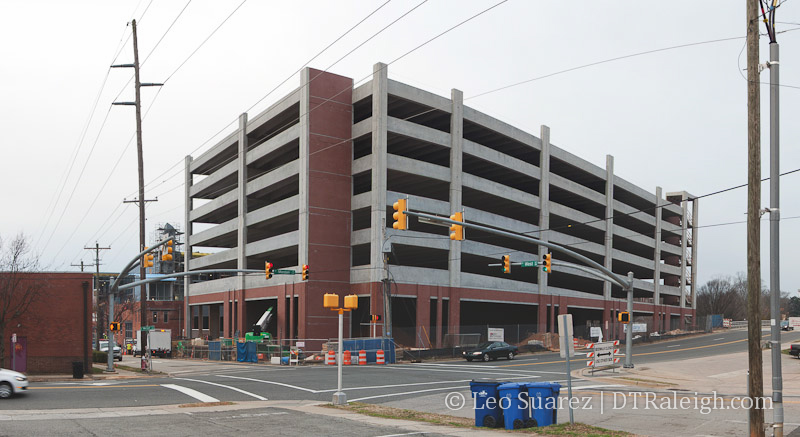Donald Shoup, the godfather of parking policy, likes to point out that city planners make decisions about parking based on the politics of avoiding on-street parking squabbles, instead of broad public policy concerns like the affordability of housing, the viability of transit, or the health of downtown. Today on the Streetsblog Network, Leo Suarez at the Raleigh Connoisseur has a story that illustrates Shoup's point really well.

When software firm Citrix sought approval for an expansion of its new downtown Raleigh office building, the company wanted an exemption from zoning rules that would require the construction of 425 parking spaces -- about 25 percent more than Citrix was already planning to build. Even though Citrix has programs to encourage transit and bike commuting, and even though downtown Raleigh has "a gross oversupply of parking" according to a local engineering firm, the planning commission was having none of it:
A few commissioners expressed concern about the lack of detailed information on how many employees would be on site at a time. Without this detailed information, commissioners could not anticipate any potential problems that, if Citrix was wrong in its parking usage, would permeate out across the warehouse district in the future.
Commissioner Steve Schuster, who by the way is one of the leads at Clearscapes Design Firm and is probably an expert on the warehouse district because of their heavy involvement on Raleigh Union Station, stated, “We’re about to face a parking challenge in the warehouse district.”
Schuster’s thinking was most likely based on ongoing analysis of the entire warehouse district and how development could boom here in the near future. Schuster, with the backing of other commissioners, felt that allowing this parking reduction exemption would set a precedent for future developments here, further exacerbating the parking problem.
The conclusion to the meeting is that the commission motioned to defer the office expansion so that Citrix could bring back more details on employee counts. They approved the deferral. Remember, this application was for the office expansion but parking dominated the discussion instead.
Citrix reps then, right on the spot, made a move to drop the parking reduction exemption, raise the parking space count to 430 in an effort for construction to stay on schedule. This was approved and Citrix got their office expansion.
Suarez concludes:
What bothers me here is the handling of the request from Citrix and how it fits into the future vision of the warehouse district and downtown as a whole. Aren’t we trying to become a little more urban? Aren’t we trying to create growth nodes, filled with density that support alternative transit? Haven’t we identified that the city has a parking oversupply and is spiraling into debt?
I felt like the commission had a perfect candidate, one that asked for a parking exemption and is compensating for it with the exact urban culture that downtown Raleigh needs. Instead, it was status quo and the future of the warehouse district is on a path for more parking decks.
Elsewhere on the Streetsblog Network: Joe Urban warns that a $50 million rehab of Minneapolis's Nicollet Mall won't address the basic urban design flaws that plague the street. Real Hartford has an update on the effort to keep a critical transportation link open for walking and biking. And the WashCycle relays the news that people are making accessories specially tailored for Capital Bikeshare bikes.





